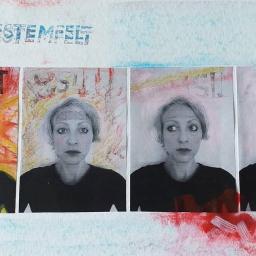How important is it for children to see representations of themselves on television? Numerous studies have shown that children benefit from encountering media in which they can see people who look and sound like they do, though much of the research on this topic is regarding representations of race and gender difference. More and more, however, there is recognition that children with disabilities and other forms of difference need representation too. Sesame Street has historically done a wonderful job of representing all kinds of children and families on their show. In 2017, the program made new strides in this direction, debuting Julia, a character on the autism spectrum. In the last year, the show has introduced Julia's family (and her dog!). Julia is part of Sesame Workshop's initiative to See Amazing in All Children. The program offers resources and information for families who are affected by autism. Educational psychologist Dr. Jeannette Betancourt, who leads the Sesame Workshop's social impact initiative, said that Julia is intended to help viewers see the similarities between all families, no matter their situation, as well as learn about the autism spectrum.
Meet Karli: Representing Difference On Children's TV
Now, Sesame Workshop has introduced Karli, a new character whose parents are recovering from addiction. Recognizing that more and more of our nation's children are affected by the addictions of their caretakers and families, Sesame Workshop has decided to show its viewers the challenges and successes experienced by Karli and her family. One of the best part of the above segment, which introduced Karli, is that it affirms the idea that addiction is a sickness which requires treatment. This will help children understand that their parents have not abandoned them by seeking help, but are in fact getting help in order to be better parents. The segment also emphasizes the fact that parents who need to leave their children for addiction treatment are faced with a terribly painful decision. As Salia says in the segment above, though her parents were only away from her in treatment for sixty days, to her that time felt like sixty years. As Salia's dad reminds her, it felt terribly long when he was away from her too. He cried because he didn't want to leave her, but he went to rehab because he wanted to be a better parent.
Karli's introduction to Sesame Street represents an important step for representation of children who are affected by addiction and other mental health conditions. We believe that this character will not only help children affected by addiction realize that they are not alone, but help children and their parents have important conversations about respecting difference and finding the common ground that we all share.
For more information about how representation affects children, check out the Tuft's University Children's Television Project.



